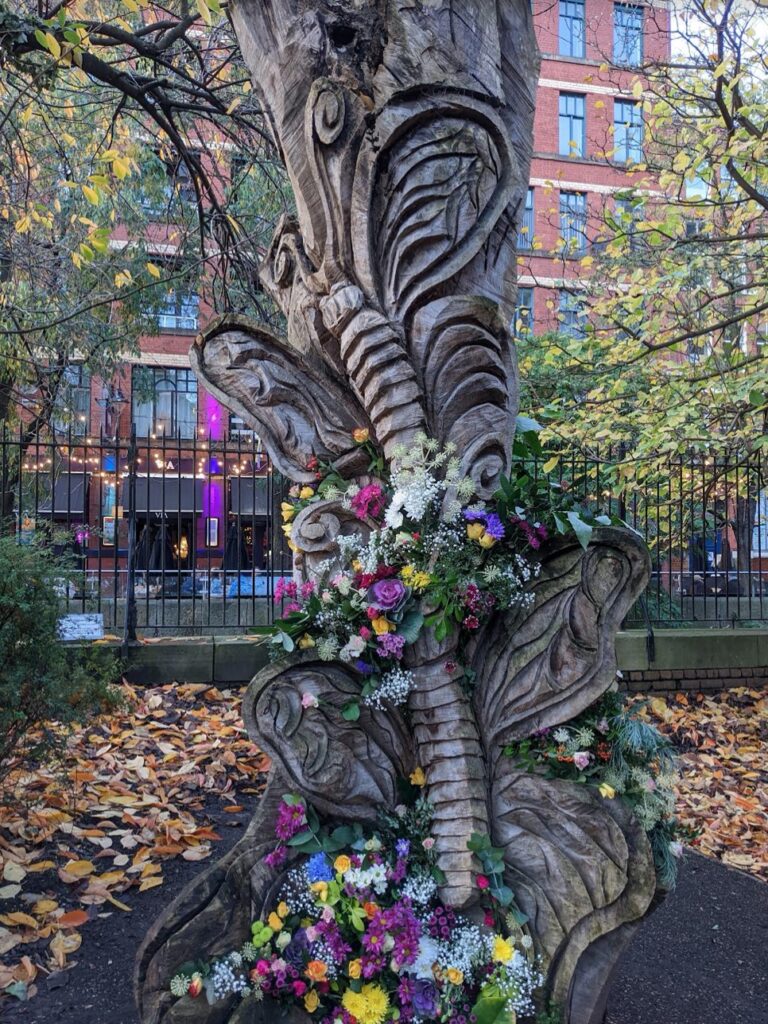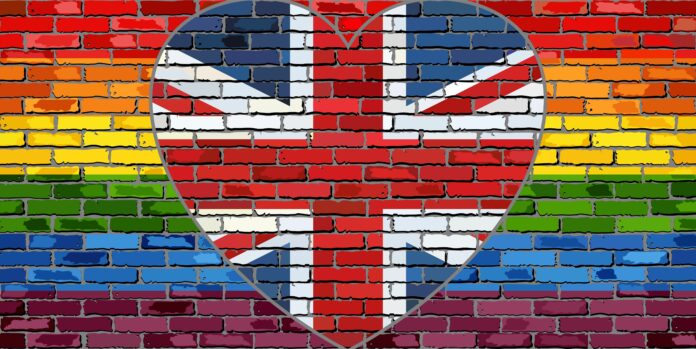In February, during the UK’s LGBTQ History Month, many organizations hold events to uplift LGBTQ+ communities and to highlight queer history. Sharing those stories and the lessons they provide has taken on added significance in 2023 as LGBTQ people in the UK face attacks both physical and social.
The UK-focused human rights charity EachOther reported that from 2020 to 2021, hate crime rates increased for almost all protected classes, sexual orientation and gender identity included. In the same time period, 19,679 hate crimes based on sexual orientation were reported in the UK, compared to 6,363 reports from 2014 to 2015. Since 2020, hate crime rates connected to trans people increased 2%, and shot up 12% for LGB people.
Clara Barker, a trans woman and researcher in the Department of Materials at the University of Oxford, noticed that school officials have become more nervous about holding LGBTQ-centric events or inviting LGBTQ speakers into schools.
“In previous years, usually I’d be invited to speak at at least one local school,” Barker said. “Over the last couple of years, schools have gotten more and more nervous about bringing in specifically trans speakers, especially if they’re talking about being trans, because of the backlash that they’re getting. People are more nervous about advertising things; people are more nervous about being seen to be doing something.”
Similar to the United States, LGBTQ British people — and specifically trans youth — have encountered roadblocks to healthcare in recent years. Part of the problem, EachOther reported, began with a December 2020 High Court ruling saying that youth below 16 years of age were barred from giving informed consent when seeking gender-affirming care, such as puberty blockers. The ruling was repealed in March 2021, permitting care for youth under 16 with parental consent. Later that year the Court of Appeal overruled the High Court’s decision, reinstating access to puberty blockers for those under 16. Even so, the initial ruling had ramifications for trans youth seeking healthcare.
“The idea that the medical experts don’t know as well as a lawyer who doesn’t have specialty in healthcare, nevermind gender affirming health care, that that can sit with the court is disconcerting,” said Barker, who works with LGBTQ youth groups in Oxfordshire in addition to her job in academia. “Sure enough, my young people were really upset; they were scared and confused and worried about what that was going to mean. Their parents or carers were as well.”
At the moment, the only National Health Service (NHS) gender-affirming health center in the UK is closed and will be expanded into several smaller regional centers to accommodate more trans youth. In the interim, trans people under 18 have virtually no options for gender-affirming healthcare from the NHS. They would have to resort to private clinics in order to get care.
“When you’re a young person and your body’s changing, that’s a very upsetting thing,” Barker added. “Any of our gender questioning young people, trans or nonbinary people, unless they’ve got more money, they don’t have access to healthcare right now. I think it’s cruel.”
Another issue related to LGBTQ equality made UK headlines of late: the Church of England recently accepted a proposal from its Bishops to provide blessings of same-sex unions. However, the Church still defines marriage to be between a man and a woman, and priests are not permitted to perform same-sex marriages. Many LGBTQ advocates in the Church of England have criticized the decision.
“This entire debate has gone on too long and has reached a new level of absurdity,” Rev. Elder Cecilia Eggleston, moderator of Metropolitan Community Churches (MCC) worldwide, said in a press release. Eggleston is herself in a same-sex marriage. “This ‘compromise’ rule is ridiculous: The Church of England refuses to recognize same-sex marriages and continues to denounce intimate relationships between unmarried couples of any orientation, but it is now offering Church blessings to those unions it refuses to accept in any form.”
In Manchester, the first National Trans Memorial was severely damaged by fire during Manchester Pride last year, though it was unclear whether or not the fire was set intentionally. Efforts to determine the next steps for the memorial — two giant three-dimensional butterflies carved into a sycamore tree adorned by plaques memorializing victims of trans hate crimes — began last year with a nationwide consultation initiative led by the team at Sparkle: the National Transgender Charity.

“We want to understand what the community wants from a new memorial or monument, how they engage with the memorial, whether physically or virtually, and how it reflects the full diversity of trans lives and experience,” Sparkle board trustee Lee Clatworthy told PGN in an email. “We want the entire community, including trans youth, TPOC, non-binary people, those with disabilities, neurodivergent trans people etc., to inform every step of this project.”
Clatworthy added that Manchester Pride security did not receive a written brief, did not include the memorial in their event safety plan, and were not informed of a protection order that banned public urination in the park where the memorial was located. It was theorized that while someone was urinating on the memorial, they left a lit cigarette on the tree trunk that set the memorial aflame.
Clatworthy said that Sparkle is working with global engineering and professional services firm Arup as well as the LGBT Consortium to reach people nationwide and locally to determine how a new Trans Memorial might best serve the community.
“We’re not just looking at how a new memorial or monument might look, but how it works in its environment, how everyone outside Manchester, and potentially the UK, can engage with the memorial, and how we can “future-proof” it for future generations. That means that whatever replaces the current memorial needs to be resilient and impervious to not just the elements, but also any transphobic individuals and hate groups.”
Despite the memorial’s destruction, and despite the continued legislative and cultural barriers to LGBTQ rights, the resilience of the community and its allies still shines through.
“We’ve been pleasantly surprised by the sadness and anger shown by allies outside of the community,” Clatworthy said. “Even though trans people are constantly attacked by the UK media and online, we have to remember those ‘gender critical’ people are a vocal minority, and that wider society supports trans equality and inclusion.”
Barker also acknowledged that most people she talks to about the need to protect trans youth want to make positive change.
“Talking to teachers and schools and people from the NHS, I’ve seen where the change is happening,” Barker said. “It’s slow, and it would be great if it was faster but I am actually seeing a positive change. So many teachers that I spoke to said ‘we can’t do this because we’re so worried about this,’ but they want to offer that support. I think that’s a really nice shift in society, that genuinely, most people want the best.”
